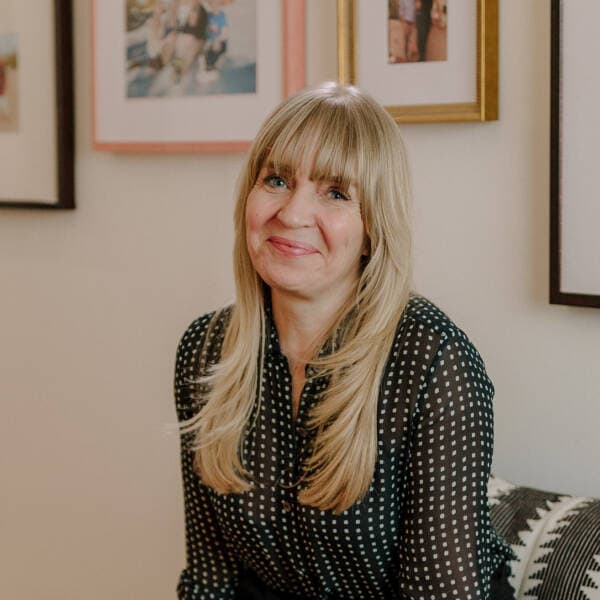Advertisement
Cog's Weekly Newsletter
Put it in writing

Editor's Note: This essay appeared in Cognoscenti's newsletter of ideas and opinions, delivered weekly on Sundays. To become a subscriber, sign up here.
I have found my dream job. (Sorry, WBUR.) Until I worked with Jane Rosenzweig on an essay about a letter she wrote to Jimmy Carter as a child this week, I had no idea the Office of Presidential Correspondence (OPC) — one of the biggest and oldest offices in the White House — even existed. But now I can't stop thinking about what it would be like to work there.
The OPC’s mission is to amplify the voices of the president’s constituents by listening to “stories of the American people, by the American people.” The office dates back to 1897 and employs a full-time staff, plus dozens of interns and volunteers. They answer letters and emails, and are active on X (@DearPOTUS) and Instagram (@dearpotus46). You may have heard of Barack Obama’s 10LADs, the 10 letters a day from regular Americans that were placed in a purple folder at the back of the briefing book he took with him when he left the Oval Office every evening. The OPC created that. (Joe Biden has his own version called 5LAWs, five letters added to his “weekend book.”)
The letters are filtered and sorted; the concerns expressed are addressed and, if necessary, escalated. Sometimes the authors of these letters end up in the anecdotes included in the State of the Union. Every once in a while, they are the nervous outsiders flanking the president and members of Congress at bill-signing ceremonies. And sometimes they are a 10-year-old girl named Jane, who has really strong feelings about women in the military.
When Jane and I started working on her essay, she confessed she has a whole closet full of saved letters. “I think the world can be divided into the savers and the let-go-ers when it comes to letters,” she wrote in an email.
I am definitely not a let-go-er. I have the very first letter I ever received, sent to me by my father, who was in Vietnam, when I was born. I was 2 months old when I received his seven-sentence letter. “I can’t wait to get back home and resume my fatherly duties,” he wrote.
I also have multiple letters from my 21-year-old boyfriend (now husband), written on stationery my parents gave him as a gift, discussing our post-college future together.
I’ve saved this correspondence because it’s valuable to me. But what struck me most about Jane’s essay was her assertion that “[t]he value of human correspondence isn’t reserved for the person receiving a response — but also for the person whose job it is to respond — to say, I’m here, and I’m paying attention.” She’s right, of course.
I spent one semester of my junior year of high school as an exchange student in Vienna, Austria. I wrote more than 100 letters to people in the States that year (this was before email, texts and cheap phone calls to foreign countries). I wrote to my parents, my three siblings, my uncles and aunts, and all four grandparents. I wrote to high school friends, old teachers and neighbors back home in Queens. And they all wrote back.
Advertisement
When I left Vienna, I packed up all of the aerogrammes, letters and postcards I had received in an empty Sachertorte box and flew to JFK with them in my suitcase. They stayed packed away for 35 years — until last October when I suddenly and inexplicably decided I needed to organize this part of my teenage life.
I bought some archival-quality page protectors and three-ring binders and got to work. Seeing my semester abroad through the eyes of the people who responded to the letters I wrote was a joy. “We forget all too soon the things we thought we could never forget,” Joan Didion wrote in “Slouching Towards Bethlehem.” “We forget the loves and the betrayals alike, forget what we whispered and what we screamed, forget who we were.”
And she was right, too. There was so much that I had forgotten. But after spending days of reading, sorting and comparing all of this correspondence, the essence of that time, the essence of 17-year-old me slowly came into focus. The people who took the time and made the effort to write to me — the people back home saying “I’m here, and I’m paying attention” as Jane says — helped me put the pieces of my life’s puzzle back together. They showed me how to connect the dots.
If I were to study abroad today, I’d surely get hundreds of emails and WhatsApp messages from home. These days, even the OPC encourages people to email rather than write a letter on paper. But it’s just not the same. As Jane points out, each choice we make for the sake of efficiency adds a layer of distance between the writer and the reader.
We can’t all have an office of correspondence with a staff of helpers. But my personal archive project and Jane’s words have reminded me I need to be more communicative with the people I love — and with strangers. To listen. To pay attention. To respond with empathy. And to put it all in writing.
Follow Cognoscenti on Facebook and Instagram. And sign up for our weekly newsletter.
